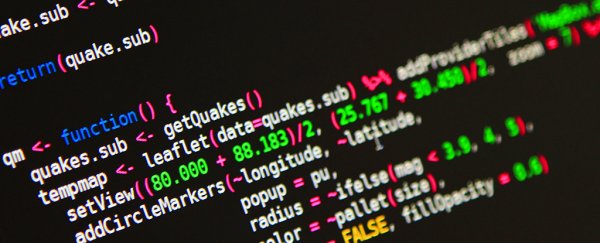A newly developed computer program is so sophisticated, it can spot DNA mutations in a single cancer cell. That huge increase in accuracy could have a major impact on the way that doctors diagnose the disease, and brings us closer to treatments that forego brute force methods like chemo and radiotherapy for a more personalised approach.
Whereas existing 'next-generation sequencing' (NGS) techniques measure genomes derived from millions of cells, the new program, called the Monovar method, is capable of pinpointing important variations within tissue samples that would normally get lost in all the noise.
Monovar is built on technology known as single cell sequencing (SCS), which is used not just in cancer research, but also in neurobiology, microbiology, and immunology. The newer SCS method pulls genome data from individual cells, rather than millions of them.
Monovar can then take that new data, compare cells against one another, and spot anomalies with a high degree of accuracy. Unlike SCS, Monovar is capable of spotting very slight DNA variations, known as single nucleotide variants (SNVs), which could help in the diagnosis of certain types of cancer.
That's a lot of acronyms to keep on top of, but the upshot is that we should see improvements in cancer diagnosis and treatment, thanks to the more accurate detection of these SNVs. The Monovar algorithm essentially gives doctors more accurate data to work with, and helps them to spot subtle differences they might not otherwise be aware of.
And it's all built on statistical analysis - the system is able to extract data from multiple single cells to discover SNVs and provide highly detailed genetic data on each, explains one of the team, Nicholas Navin, from the University of Texas MD Anderson Cancer Centre.
The accurate detection of SNVs is critical for patient care, because they affect how an individual develops a disease and responds to various drugs and vaccines. These molecular variations are crucial in applying personalised medicines and treatments that are specifically tailored to the patient's body, and should provide a better 'fit'.
"Monovar is capable of analysing large-scale datasets and handling different whole-genome protocols, therefore it is well-suited for many types of studies," says one of the team, Ken Chen.
The Monovar program – which you can actually check out for yourself online – has been shown to be more accurate than standard algorithms at identifying mutations and variations, according to the benchmark tests run by the team.
This isn't the first time that 'big data' and statistical analysis have been used in the fight against cancer. Labs across the world are collecting vast amounts of data on how cancers work and how they react to various treatments - data that can be used to refine our approach to them.
Let's hope cancer patients can be given more personalised treatments in the future based on much smarter data analysis.
The program has been described in Nature Methods.
